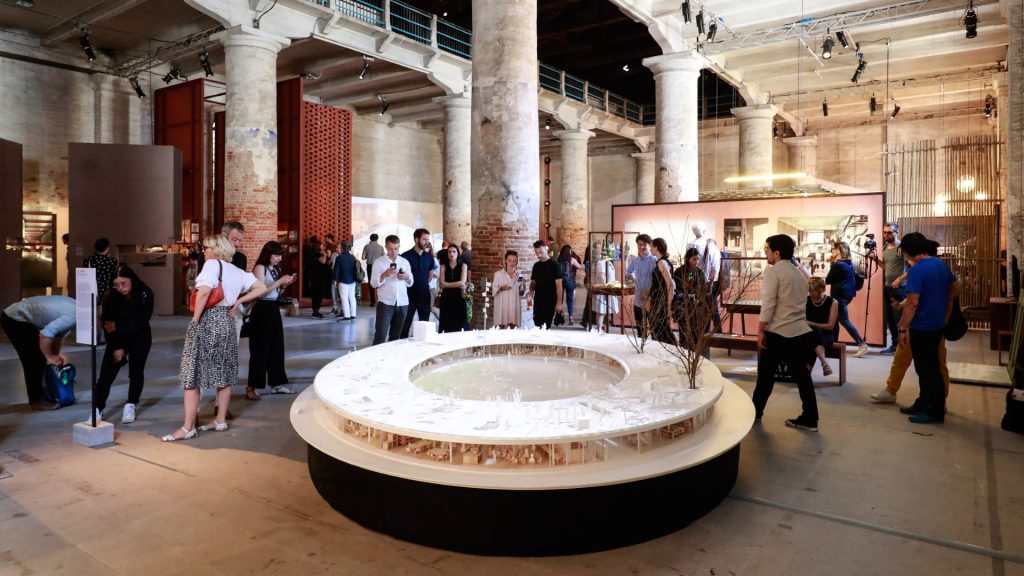
81. Venice Film Festival

80. Venice Film Festival

79. Venice Film Festival

The Biennale Arte Guide
Foreigners Everywhere

The Biennale Architecture Guide
The Laboratory of the Future

The Biennale Arte Guide
Il latte dei sogni

Intelligens. Natural. Artificial. Collective, the title chosen by curator Carlo Ratti for the 19th International Architecture Exhibition, references the shared Latin root of the term “intelligence” and the word “gens” (people, community), evoking a more inclusive and collective future of intelligence, embracing a multifaceted dimension that integrates nature, technology, and society. In this vision, architects are seen as “mutagens,” capable of initiating and directing evolutionary processes toward positive transformations. “The Exhibition,” Ratti explains, “will search for a path forward, proposing that intelligent solutions to pressing problems can take many forms. It will present a collection of design proposals and many other experiments, exploring a definition of “intelligence” as an ability to adapt to the environment with limited resources, knowledge, or power.”
In 2025, the Central Pavilion at the Giardini, which traditionally hosts the main Exhibition alongside the Corderie of the Arsenale, will be undergoing renovation. It will be replaced by a series of special projects designed to transform parts of Venice into Living Labs—living laboratories where multiple forms of intelligence can converge. As usual, the main Exhibition will be accompanied by the independent projects of the National Participations. With the aim to reintroduce a degree of coherence with the theme of the main Exhibition, the Curator has invited the participating countries to address the common prompt of One place, one solution, encouraging the presentation of successful case studies to contribute to a collective “toolbox” for a better future.
The Biennale College Architecture has come to its second edition. Over 200 students, graduates, and emerging professionals under 30 from 49 countries – working in architecture, urban design, engineering, interior design, landscape architecture, and the built environment – applied for participation. Sixteen selected projects from Bahrain, Brazil, Canada, Chile, China, Ethiopia, Finland, France, Germany, India, England, Italy, Malaysia, Mexico, Portugal, the Syrian Arab Republic, and Spain will take part in a workshop scheduled from September 10 to 18, 2024. The goal is to complement the Exhibition with a research and experimentation lab aimed at developing projects that leverage natural, artificial, and collective intelligence to combat the climate crisis.
Carlo Ratti (Turin, 1971) is a world-renowned architect, engineer, and designer. He teaches at the Massachusetts Institute of Technology (MIT) and the Politecnico di Milano. He is the director of the Senseable City Lab and a founding partner of the architecture and innovation firm CRA – Carlo Ratti Associati (based in Turin, New York City, and London). An author of numerous essays and a sought-after speaker at global conferences, Ratti is a pioneer in smart cities and the digitalization of the built environment. His work has been exhibited in prestigious venues such as MoMA in New York and the Triennale di Milano.
The second act of Fondation Cartier and Jean Nouvel unveiled at the Fondazione Cini
Natural, artificial, collective: Carlo Ratti presents his Architecture Biennale
Argentina, Austria, Belgium, Italy, Luxembourg, Switzerland